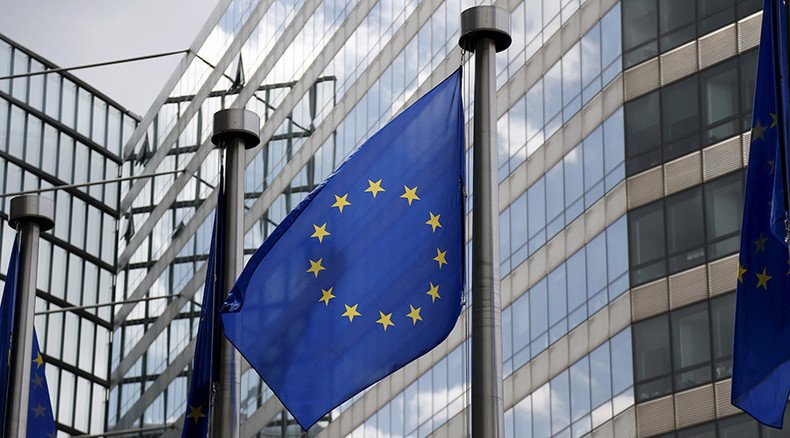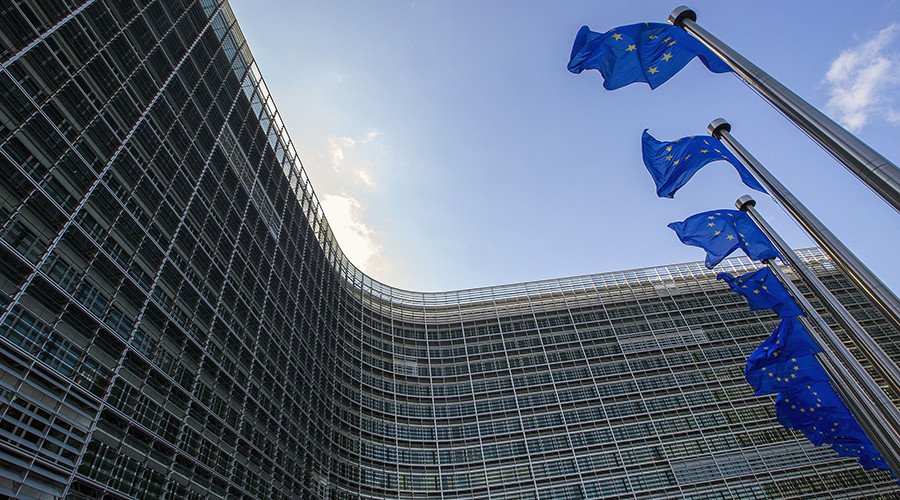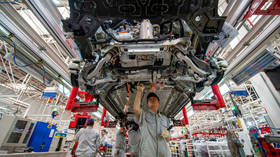‘EU spends millions on propaganda as it loses battle to win people over’

The EU is spending millions of euro on political propaganda as mistrust among its citizens has grown, said Robert Oulds, chair of the Euroskeptic Bruges Group think tank. Many people see the EU as encumbrance in terms of their economic and democratic lives, he added.
RT: In 2014, the EU committed €664million (£560m) directly on promotional and communication spending through budgets where their primary purpose was promoting the EU “the political priorities of the Union.” What is it all about?
Robert Oulds: What this actually is - propaganda to make people support the EU and trying to influence the political process ranging from targeting children in schools with biased literature, which only represents one view and is supportive of the EU, and of course its quest to centralize power in the EU, to its influence over universities as propaganda tools, through Jean Monnet Chairs, and the funding and supporting of people that support the EU, to money going towards groups that support further integration, the paying of what the EU calls “civil society groups” to lobby the EU to take more powers away from nation-states.
…It is really anti-democratic, it is an abuse of tax payers’ money, and it is interfering in all levels of society, be that from the education system in terms of higher education and lower education, in terms of secondary schools and even below, to the cause of promoting the EU in terms of funding organizations that support integration. That is very quiet inappropriate, and there should be better ways of spending this money decided by democratically elected people in an independent nation-state, not by the EU.
READ MORE: EU ‘self-promotion’ budget reaches €664 million in 2014 - Eurosceptic group
RT: The EU's committed up to €4 billion from departmental budgets for promotion. What would be an acceptable level and how else could that money better be spent?
RO: The aim of the EU is to create ever closer union; it’s there to take away powers from nation-states to create more centralization into a mass power, not with individuals or nation-states, or regions, but at the center of the EU based in Brussels... It’s a very contentious political issue; ... there is a whole host of issues affected by the EU…such as the austerity measures, which cause such economic harm for southern Europe, in particular Greece; and of course there is a very contentious issue within the UK, where they are going to have a referendum before the end of 2017 on Britain’s EU membership.
We can be sure that the EU will be spending literally millions of pounds trying to persuade the British electorate to vote to stay in the EU. That is an unwelcome interference that shouldn’t be allowed. But the EU is given this right to promote itself, to promote what is in reality propaganda, and interfere in the politics of nation- states…

RT: One of the main ideas promoted is the 'ever closer union'. How tough is that given the swirling threats of an exit by Greece or even Britain?
RO: It’s not just self-promotion talking about what the EU does - it’s actually giving over a particular ideology that’s arguing that independent nation-states of the EU, members of the EU, need to have more powers handed over to the EU. It’s not just self-promotion saying “we are here”, it’s interfering in the politics of member-states trying to put over their belief that they should have more power.
The reason they are spending more money on this is because people are gradually turning against the EU. Mistrust in the EU has increased in all member-states, and the strongest- within Britain where many people are indeed EU-skeptic. That is one reason why we are having a referendum on our membership. But of course in other countries- mistrust in the EU has grown – people are beginning to feel that the EU takes more powers, that it is actually remote, it’s not democratic, that it is something which is encumbrance in terms of economic and democratic lives- it’s getting in the way. It is one reason why the EU feels it needs to spend more money on propaganda to try and win people over. But of course it is a battle that the EU is indeed slowly losing.
RT: How successful has the EU been in promoting its ideas?
RO: They have been very successful in taking powers away from nation-states, very successful in making people follow a one-headed policy such as the austerity program, the euro currency, and the whole host of other policies. They are not successful in taking away people’s nationality. Most people across the EU in every single member- state of the EU still see themselves as first and foremost members of their own nation-state rather than members of the EU…
This effort to create European man where there is just one identity alongside, one set of policies decided away from public scrutiny in Brussels is not working. People want to have their own self-government; they want to be managing their own affairs alongside other people in their own countries- not to be dictated to. We’re seeing the end of multi-national federations across the world. ..So the EU really is against the process of history. We see these more and more nation- states coming into being across the world after the WWII, there was a 140 nation-states, members of the UN. Now of course there are around 200…
The statements, views and opinions expressed in this column are solely those of the author and do not necessarily represent those of RT.
LISTEN MORE:
The statements, views and opinions expressed in this column are solely those of the author and do not necessarily represent those of RT.












